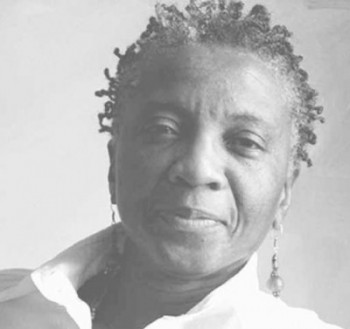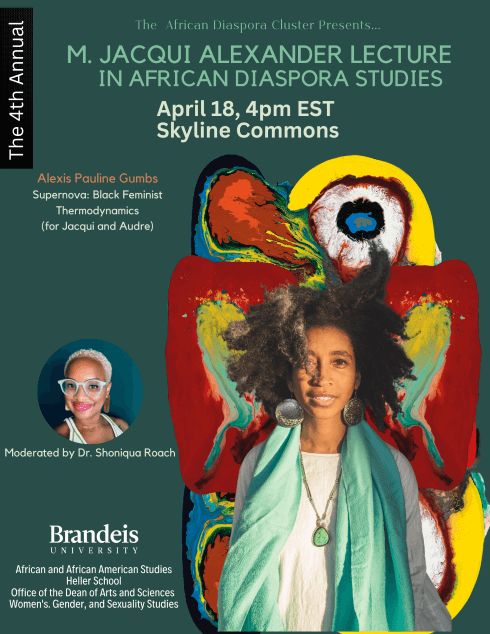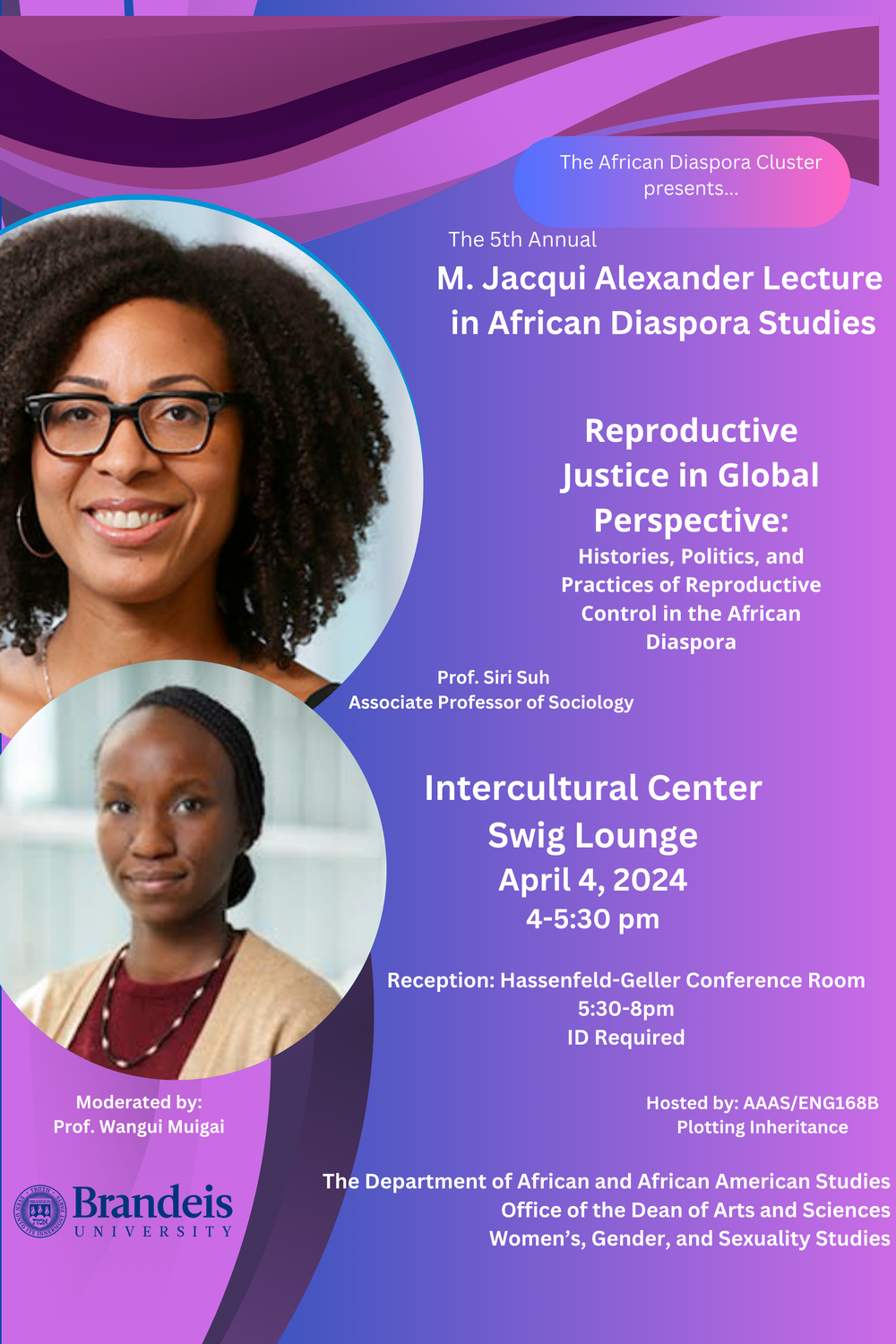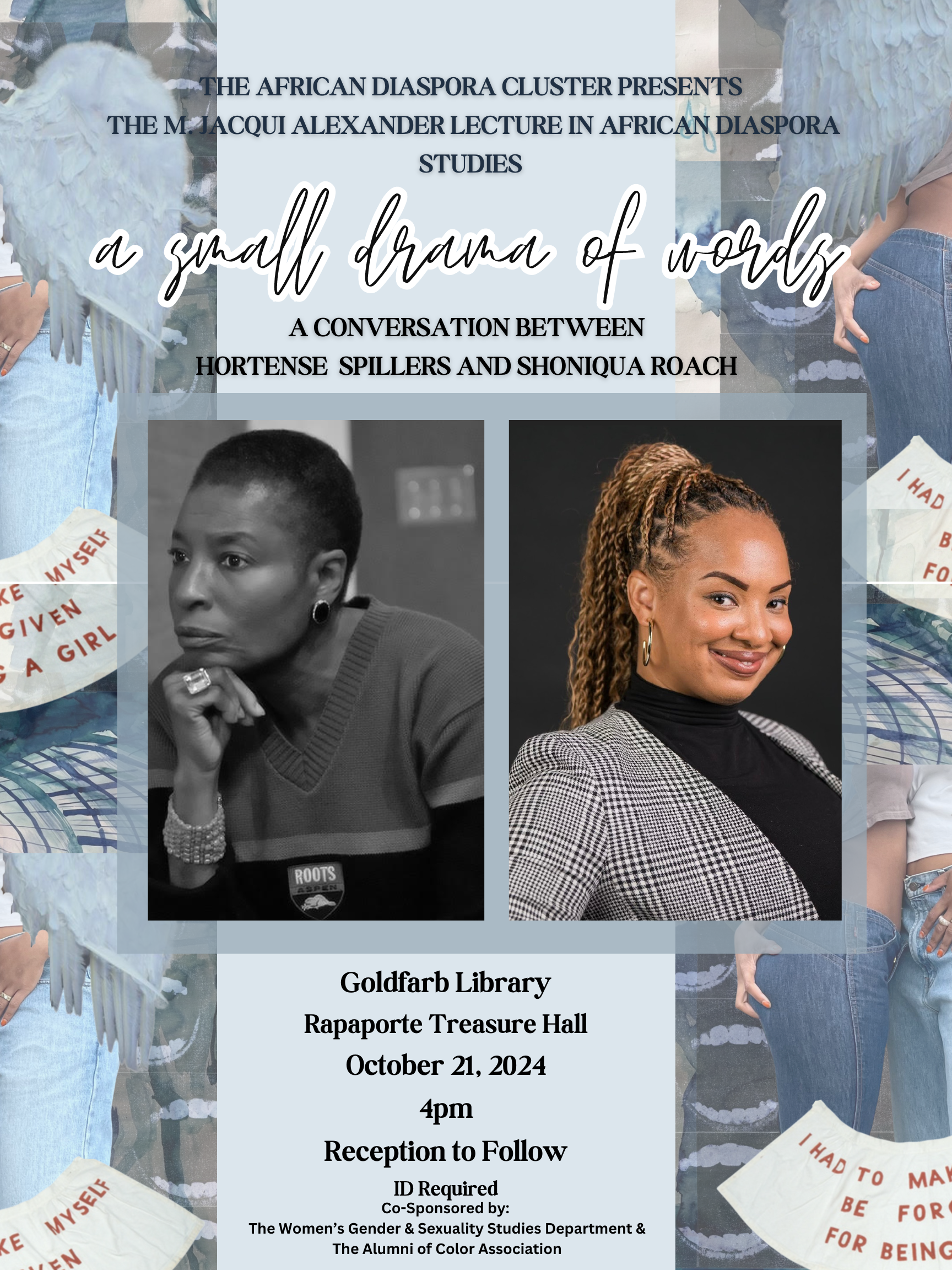Annual M. Jaqui Alexander Lecture in African Diaspora Studies

This series was inaugurated and continues to be sponsored, by the department’s African Diaspora Cluster, committed to deepening our global and interdisciplinary engagement with the cultural formations of the African diaspora. Professor Alexander taught sociology at Brandeis in the early 1990s, and at that time organized a four-day conference in Boston with over a thousand attendees from 23 countries: “The Edge of Each Other’s Battles: The Vision of Audre Lorde.” Professor Alexander’s 1994 essay “Not Just (Any) Body Can Be A Citizen” names a “crisis of legitimation” for governments in the English-speaking Caribbean faced with the inability to deliver on promises made decades earlier -- because by the 1990s they were tethered to restrictive World Bank and International Monetary Fund requirements. Alexander proposes that they compensated for these
economic and political shortcomings by ramping up
moral surveillance – the recriminalization of homosexuality, for instance. Alexander places this 1990s situation in the context of the anxiety of Caribbean politicians, and nationalist male leaders who were the descendants of enslaved and indentured people and who embodied the region’s anxieties about centuries-old charges of unnatural appetites. Alexander insists that we connect governance to sexuality - that we examine the ways in which histories of intimacy are imbricated with histories of law and order. Importantly, Alexander cautions us that fighting for sexual rights (as a way of countering this legacy of violent respectability, for example) has to be done in the full knowledge of violent histories of racialization, and that queer movements of the global north must acknowledge histories of racialization and imperialism. Quoting Alexander here, “I urge queer studies and queer movements to take up questions of colonialism, racial formation, and political economy simultaneously” [instead of] offering up sexual freedom alone on the broken platter of U.S. democracy” (12). This last quotation comes from Professor Alexander’s important work,
Pedagogies of Crossing: Meditations on Feminism (2005), continuing her important contribution to the way that we think about colonialism, nationalism, and sexuality, in an earlier important collection edited with Chandra Mohanty in 1994, and republished in 2012: and that was the volume
Feminist Genealogies, Colonial Legacies: Democratic Futures.
Pedagogies of Crossing is also a powerful invitation to reintegrate spirituality into how we come to know and claim to know in our identities as academics. Professor Alexander is Professor Emerita of the University of Toronto, and she is the Founding Director of the Tobago Center for the Study and Practice of Indigenous Spirituality.
Expand All
April 18, 2023, Skyline Commons
The African Diaspora Cluster presents the 4th annual M. Jacqui Alexander Lecture in African Diaspora Studies. Alexis Pauline Gumbs will be having a conversation with African and African American Studies Professor Shoniqua Roach.
Alexis Pauline Gumbs is a Queer Black Feminist Love Evangelist and an aspirational cousin to all life. She is/they are the author of several books, most recently "Undrowned: Black Feminist Lessons from Marine Mammals" and the co-founder of the Mobile Homecoming Trust, an intergenerational experiential living library of Black LBGTQ brilliance.

April 4, 2024, Intercultural Center Swig Lounge
The African Diaspora Cluster Presented The 5th Annual M. Jacqui Alexander Lecture in African Diaspora Studies with Brandeis professor, Dr. Siri Suh.
Siri Suh is a medical sociologist with research interests in global maternal and reproductive health, population and development, and feminist and postcolonial studies of science, medicine, and technology. As an Associate Professor of Sociology at Brandeis University, I teach undergraduate and graduate courses on biomedicine, health and illness, reproduction, and ethnographic research methods. I have conducted research on maternal and reproductive health with the United Nations Population Fund (UNFPA), the Guttmacher Institute, Global Doctors for Choice, and Management Sciences for Health (MSH).

October 21, 2024, Rapaporte Treasure Hall, Farber Library
The African Diaspora Cluster Presented The 5th Annual M. Jacqui Alexander Lecture In African Diaspora Studies. Professor Hortense Spillers spoke in conversation with African and African American Studies Professor Shoniqua Roach.
Professor Hortense Spillers, PhD’74, is a scholar whose theorizing has transformed the critical landscape of Black Feminism, Critical Theory, Literary Criticism, Black Diaspora Studies, and the narration of US American kinship and inheritance. She is Professor Emerita, Gertrude Conaway Vanderbilt Professor, and Distinguished Research Professor, of Vanderbilt University.




